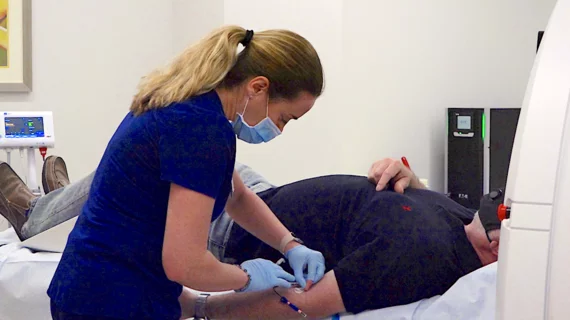FDA temporarily approves importation of a second foreign-labeled iodinated contrast media
Bracco Diagnostics has been given the go ahead by the U.S. Food and Drug Administration to temporarily import Iomeron (iomeprol injection) into the U.S. market amid the ongoing iodinated contrast media shortage.
Iomeron is an intravascular iodinated contrast media that can be used in adults for various imaging procedures. It is manufactured by BIPSO GmbH in Germany and Patheon Italia S.p.A. in Italy, but is not FDA approved for use in the U.S. However, it is manufactured alongside Bracco’s FDA-approved contrast, Isovue (iopamidol injection).
In a Dear Healthcare Professional Letter shared by Bracco, the company indicates that they are coordinating with the FDA to increase the availability of the product immediately, but it will be a temporary measure only.
This is the second imported product that the FDA has approved for use in the U.S. amid contrast supply shortages. Bayer has also been granted permission to temporarily import foreign-labeled Ultravist (iopromide), which is manufactured in Berlin, Germany.
Some experts in the field are cautioning that the shortage could linger into late September, and that practices will need to continue to follow preservation strategies in the meantime. GE’s most recent update indicates that their manufacturing facilities in Shanghai have been operating at 100% capacity again for weeks, but that they anticipate “some ongoing reduced availability of iodinated contrast media as we continue to restabilize global supply.”
For more information on Iomeron, click here.

